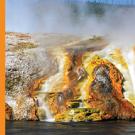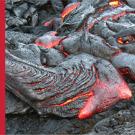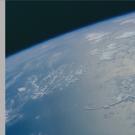Research in the Earth and Planetary Sciences department spans the spectrum from the formation of elements to the origin and co-evolution of life and environment on our planet.
Faculty research programs are broad, exciting and carried out with the help of cutting edge analytical facilities. Research localities include 3D virtual landscapes on Mars, the Caucasus Mountains in Georgia, the calderas in the volcanic fields of New Zealand, the Parana basin in Brazil, the ocean basins, and Antarctic subglacial lakes. The diversity of research programs within the department of Earth and Planetary Sciences are represented by the following disciplines:

In geology, researchers work on problems related to Earth history, structure and tectonics, magma genesis and magmatic processes, crustal evolution, landscape evolution and natural hazards.

In geobiology and paleobiology, researchers work on understanding the history of life and the interactions between life and environment.

In geochemistry and cosmochemistry, researchers develop and apply chemical tools to study the formation of the Solar System, unravel the workings of the Earth’s interior, investigate surficial processes and study global change.

In geophysics, researchers study the dynamics and evolution of the earth's interior, investigate heat and mass exchange between the surface and the interior along with processes generating earthquakes and volcanoes.

In planetary science, researchers study the formation and evolution of planets.

